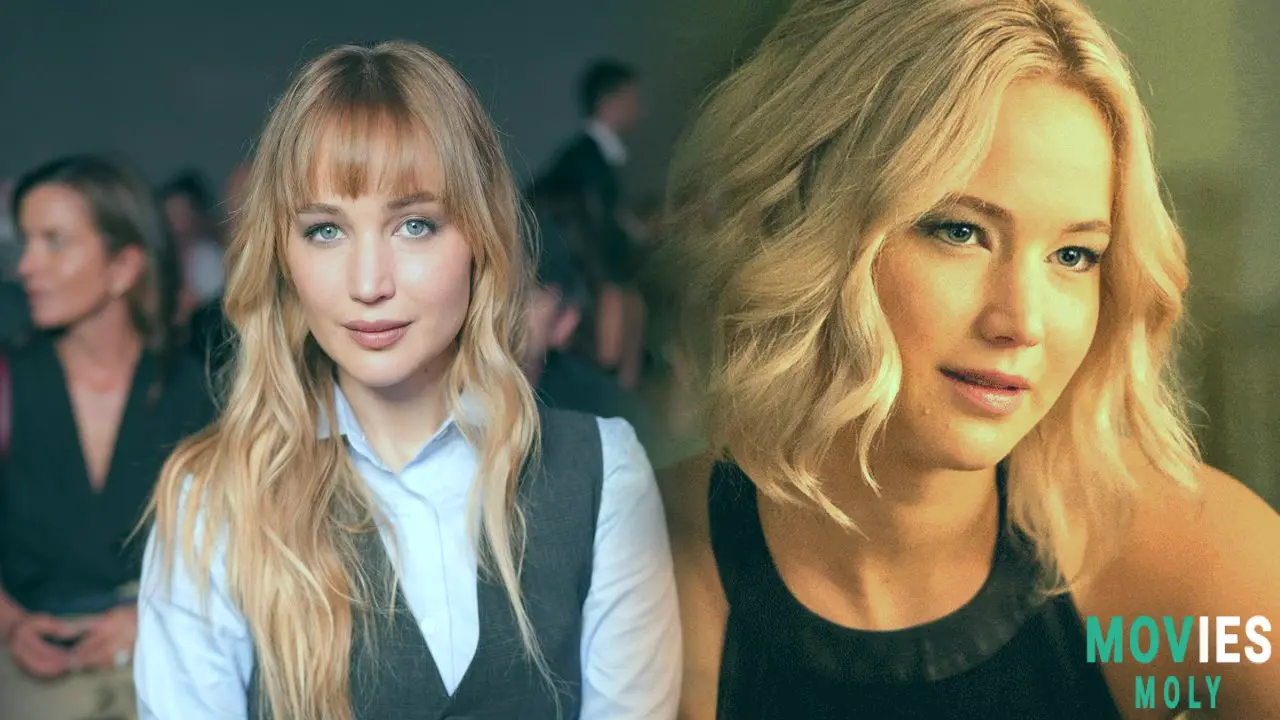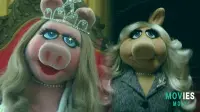Even Oscar winners aren't immune to the dread of public judgment. Jennifer Lawrence is opening up about the intense anxiety that comes with releasing a film, revealing how negative reactions can overshadow the entire creative process.
TL;DR: Key Insights on Jennifer Lawrence's Latest Thoughts
- Jennifer Lawrence finds releasing movies to the public an "awful" and "scary" experience due to fear of negative reactions.
- Her new film, Die My Love, co-starring Robert Pattinson and directed by Lynne Ramsay, is garnering mixed audience reactions despite critical acclaim.
- Lawrence's anxiety stems from previous experiences and her own past struggles with public perception, leading to a two-year hiatus.
Imagine pouring months, even years, of your life into a project you deeply love. You've invested your passion, your talent, your very essence into making it happen. Then, the day comes to share it with the world, and all you feel is a cold knot of dread in your stomach. Will they love it? Will they get it? Or will they just... say "Boo! Hate you!"?
This isn't just a hypothetical for Jennifer Lawrence. It's her lived reality, an emotional roller coaster she navigates with every film release. The acclaimed actress, known for blockbusters like The Hunger Games and critically lauded performances in Silver Linings Playbook, recently confessed that the public's reaction to her work can actually "ruin the highs of filmmaking."
“The experience only adds to the dread, because I’ve had so many experiences of working so hard on something, loving something so deeply, and then releasing it to the world, and the world just being like, ‘Boo! Hate you!’ It is so awful. And [yet] somehow, I read a script, I meet with the director, we get on set, we start doing it, and somehow I’m able to forget that this part of the process will happen. I mean, I’m very blessed and very lucky. But it’s a very scary few months.” — Jennifer Lawrence in V magazine (Source: V magazine, "Jennifer Lawrence says negative reactions to a movie you pour so much of yourself into can ruin the highs of filmmaking", Posted 20 hours ago) Unpacking the Emotional Burden of Creative Exposure in HollywoodIt's easy to assume that for someone as successful and celebrated as Jennifer Lawrence, negative reviews would simply roll off her back. After all, she's an Academy Award winner with immense privilege and financial security. Yet, her candidness reveals a profound vulnerability that connects to any creator, regardless of their status. She describes the lead-up to a film's debut as "a very scary few months," a period marked by intense anxiety.
This feeling isn't unique to a single film but is a pattern she's experienced multiple times. Lawrence highlights a peculiar mental block, where despite these past struggles, she consistently manages to "forget that this part of the process will happen" once she's immersed in a new project. It speaks to the all-consuming nature of artistic creation, where the passion for the craft temporarily overshadows the impending judgment.
Inside "Die My Love": A New Film Drawing Polarized Opinions
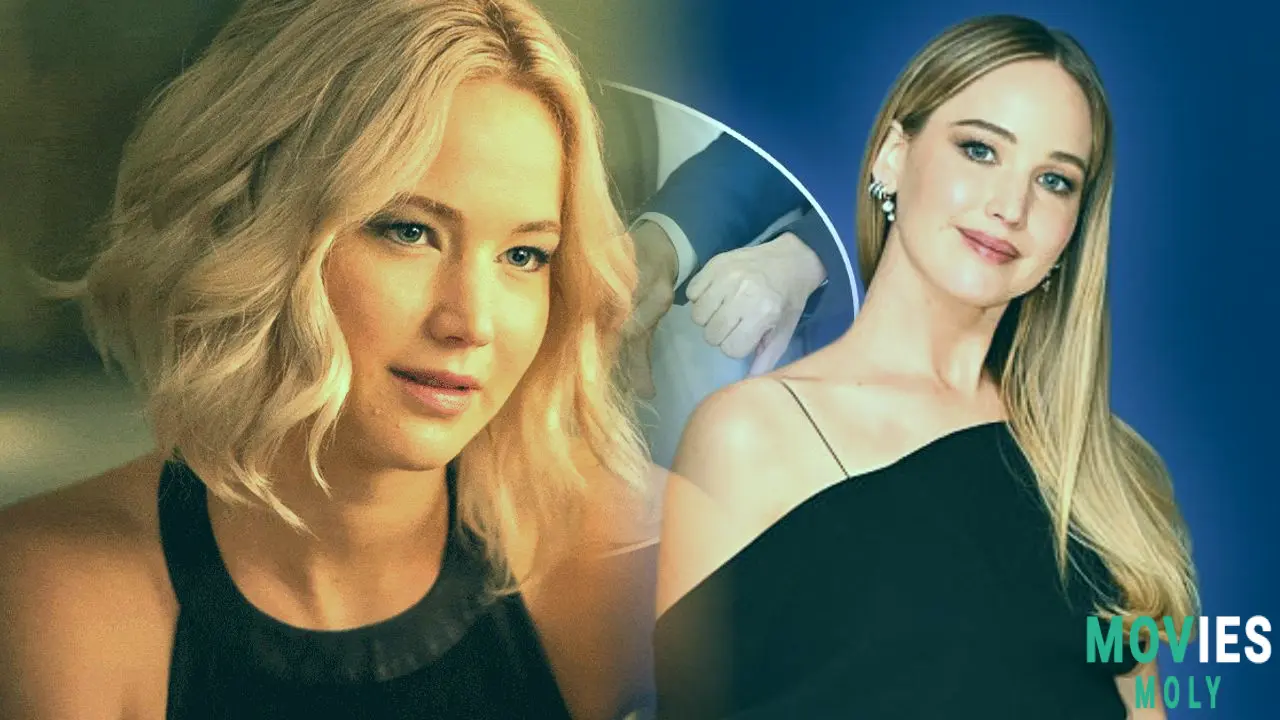
Lawrence’s current film, the psychological thriller Die My Love, directed by Lynne Ramsay, is at the heart of these recent reflections. In the movie, Lawrence portrays Grace, a writer and young mother who slowly descends into madness while confined to an old house in Montana. Robert Pattinson stars opposite her as Jackson, her increasingly worried and helpless companion.
Critically, the film has found a fair amount of appreciation. JoBlo’s Chris Bumbray, for instance, reviewed Die My Love as an "agonizing watch at times" but praised Lawrence, stating she is "quite brilliant throughout her descent into madness." (Source: JoBlo.com, "Jennifer Lawrence says negative reactions to a movie you pour so much of yourself into can ruin the highs of filmmaking," Posted 20 hours ago). However, the audience reception tells a more complex story.
While Die My Love holds a "Certified Fresh" rating of 74% among critics on Rotten Tomatoes, its audience "Popcorn Meter" score sits notably lower at 46%. (Source: Just Jared, "Jennifer Lawrence Opens Up About the 'Scary' Months Around a Film Release: 'People Might Not Get It'", Nov 15, 2025). This significant gap between critical and audience scores is precisely the kind of polarization that can fuel an artist's anxiety, demonstrating that even a well-made film might not resonate with everyone.
The Husband's Perspective: A Different Take on Disagreement
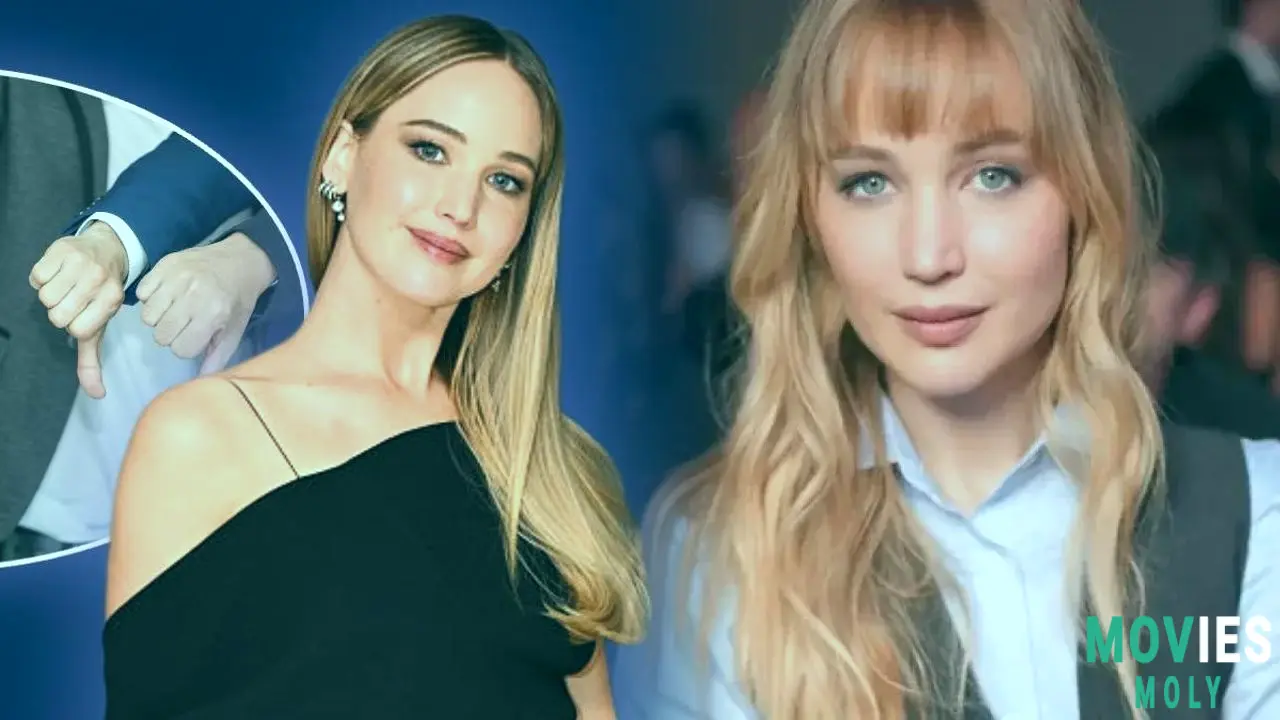
Lawrence's husband, Cooke Maroney, offers a relatable outsider's perspective on her film release anxiety. He was "so confused" by her worry, confidently stating, "But the movie's incredible." Lawrence's response, "I know, but that doesn’t matter. People might not get it," perfectly encapsulates the artist's struggle. His well-intentioned but ultimately unhelpful retort, "But they’re wrong," highlights the disconnect between unwavering personal belief and the unpredictable nature of public opinion.
Beyond the Current Release: A History of Public Scrutiny and Personal Growth

This isn't the first time Jennifer Lawrence has grappled with public perception. Her filmography includes other works, such as Darren Aronofsky's Mother!, which famously divided critics and audiences alike. Such experiences undoubtedly feed into her current anxieties.
Moreover, Lawrence has been remarkably candid about her relationship with fame and public image. She took a two-year hiatus from Hollywood, telling Vanity Fair in 2021 that she felt "everybody had gotten sick of me. I'd gotten sick of me." (Source: Variety, "Jennifer Lawrence Says ‘It’s Awful’ Working Hard on a Movie Only for the World to Hate It", Nov 14, 2025). More recently, in an interview with The New Yorker, she admitted to understanding why the public might have "rejected" her personality in previous interviews, even calling her past self "annoying." She explained this as a "defense mechanism" — a way of being disarmingly candid ("I poop my pants every day!") to cope with the immense pressure and scrutiny. (Source: Variety, "Jennifer Lawrence Says ‘It’s Awful’ Working Hard on a Movie Only for the World to Hate It", Nov 14, 2025).
These reflections illustrate a deep self-awareness and a conscious effort to navigate the unique challenges of being a public figure in a highly critical industry. It's a journey of understanding how personal presentation intertwines with artistic output in the eyes of the world.
Addressing Counterpoints: The Complexities of Creative Work and Compensation
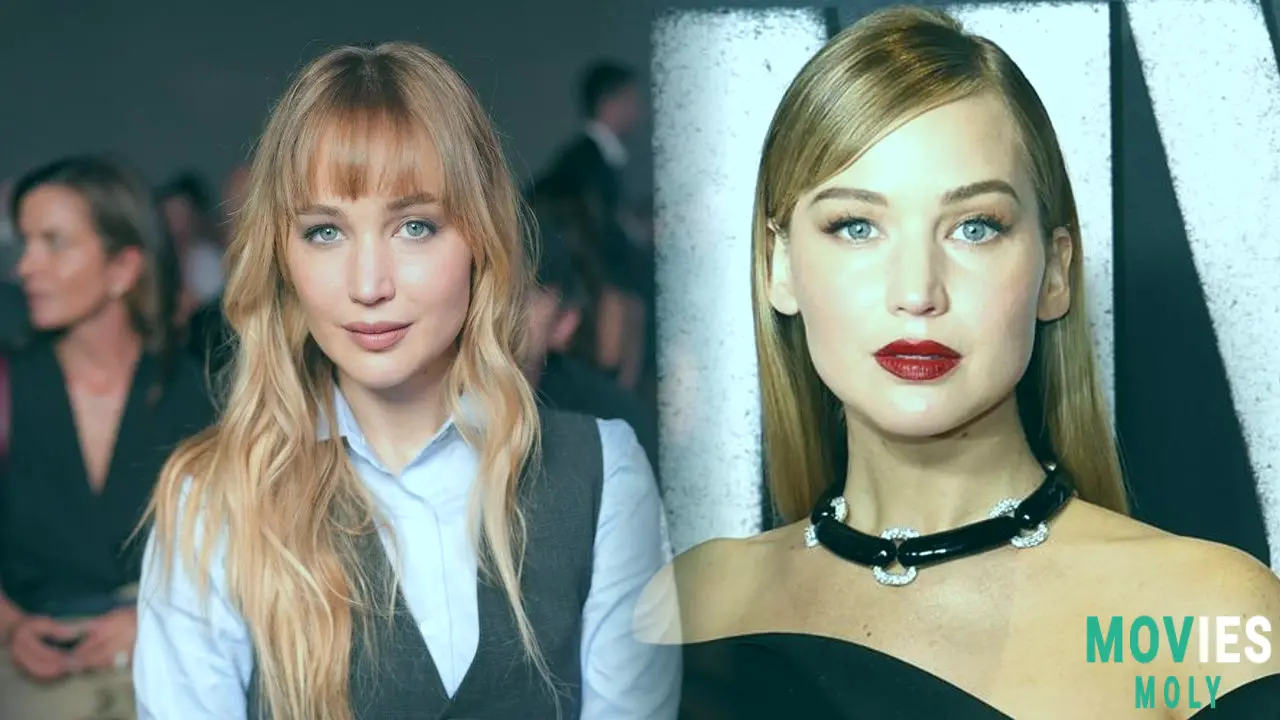
One might easily counter Lawrence's feelings by pointing to the immense financial rewards that come with being a movie star. "Sure, it might sting, but you're getting paid millions!" This is a valid point, and Lawrence herself acknowledges being "very blessed and very lucky." However, it's crucial to understand that financial compensation, no matter how substantial, doesn't necessarily insulate an artist from the emotional impact of their work being rejected or misunderstood. The act of creation is often deeply personal, a vulnerable pouring out of self. To have that personal offering met with widespread derision can be emotionally taxing, regardless of the bank balance.
Another perspective might suggest that filmmakers and actors should anticipate negative reactions, especially if the movie has perceived flaws. "Surely, they must know if a film is 'bad'?" This is a tricky assumption. The creative process is often collaborative and subjective. What one person views as a flaw, another might see as an artistic choice. A director's vision might be bold and unconventional, leading to a film that critics adore for its innovation but audiences find inaccessible. Conversely, a film made with pure commercial intent might still fail to connect. The passion poured into a project can also create a kind of tunnel vision, where the creators genuinely believe in their work, making public rejection all the more jarring.
Example: The Indie Game Developer's Dilemma
Consider an independent video game developer who spends five years crafting a unique, narrative-driven game. They pour their savings, late nights, and creative soul into every line of code and every character. Upon release, critics praise its artistic ambition and storytelling, but a vocal segment of players lambasts it for its unconventional gameplay mechanics or short playtime, leaving a barrage of one-star reviews. Despite the critical accolades and a modest profit, the developer is left feeling hollow, the joy of creation soured by the feeling that their passion project was "hated" by those they hoped to entertain. This mirrors Lawrence's experience – the personal investment makes the public's judgment deeply personal, even if others deem it a success.
The Nuance of Critical Versus Audience Reception
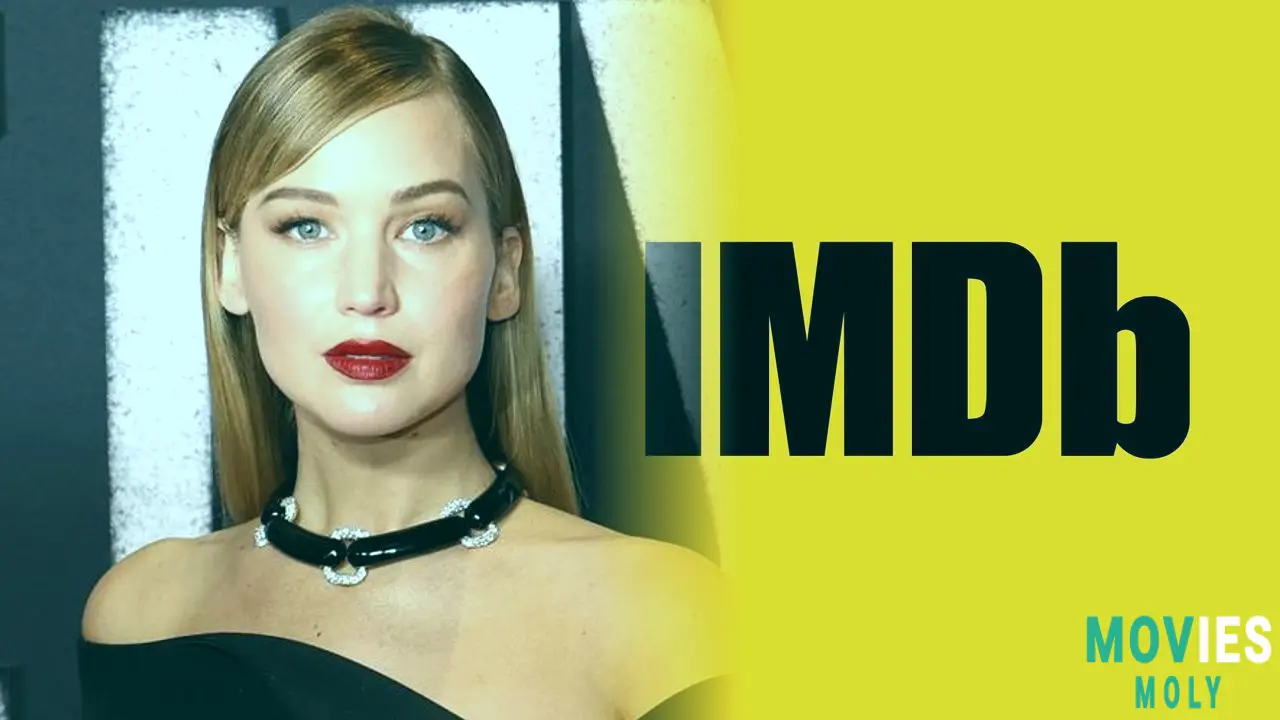
The case of Die My Love's Rotten Tomatoes scores perfectly illustrates the often-vast divide between what critics appreciate and what the general audience connects with. Critics, often evaluating films through lenses of artistic merit, technical execution, and thematic depth, might laud a film like Die My Love for Lawrence's "brilliant" performance and Ramsay's direction, even if it's an "agonizing watch." Audiences, however, often approach films seeking entertainment, clear narratives, or emotional resonance, and may find a "psychological thriller" that delves into "madness" less appealing or more challenging than critics do.
This gap can be a source of immense frustration for artists. They might have achieved their artistic goals, earned critical praise, and still face the reality that "people might not get it," leading to a feeling of disconnect and dread. It’s a constant tightrope walk between artistic integrity and commercial viability, between personal satisfaction and public approval.
Practical Takeaways for Understanding the Public Eye in Filmmaking- Empathy for Creators: Remember that even highly successful artists are deeply invested in their work and vulnerable to public opinion.
- Separate Art from Artist: While we evaluate films, acknowledging the human element behind the creation fosters a more nuanced discussion.
- Understand the Divide: Critical acclaim and audience popularity are distinct measures; a film can succeed in one area and struggle in another.
- The Cost of Candor: Lawrence’s openness about her anxiety humanizes the filmmaking process, reminding us that fame doesn't erase insecurity.
- What is Die My Love about?
Die My Love is a psychological thriller starring Jennifer Lawrence as Grace, a young mother and writer who experiences a descent into madness while isolated in an old house. Robert Pattinson plays her concerned partner, Jackson.
- Who directed Die My Love?
The film was directed by acclaimed filmmaker Lynne Ramsay, known for her distinctive and often intense cinematic style.
- What are the current reviews for Die My Love?
Critically, the film has been generally well-received, earning a 74% "Certified Fresh" rating on Rotten Tomatoes. However, audience reception has been more polarized, with a 46% "Popcorn Meter" score.
- Where can I watch Die My Love?
Die My Love is currently playing in theaters nationwide.
- V magazine, "Jennifer Lawrence says negative reactions to a movie you pour so much of yourself into can ruin the highs of filmmaking," By Steve Seigh, Posted 20 hours ago.
- Just Jared, "Jennifer Lawrence Opens Up About the 'Scary' Months Around a Film Release: 'People Might Not Get It'," By JJ Staff, Nov 15, 2025.
- Variety - Film News, "Jennifer Lawrence Says ‘It’s Awful’ Working Hard on a Movie Only for the World to Hate It: ‘It’s a Very Scary Few Months’ When You’re Opening a Movie," By Zack Sharf, Nov 14, 2025.

